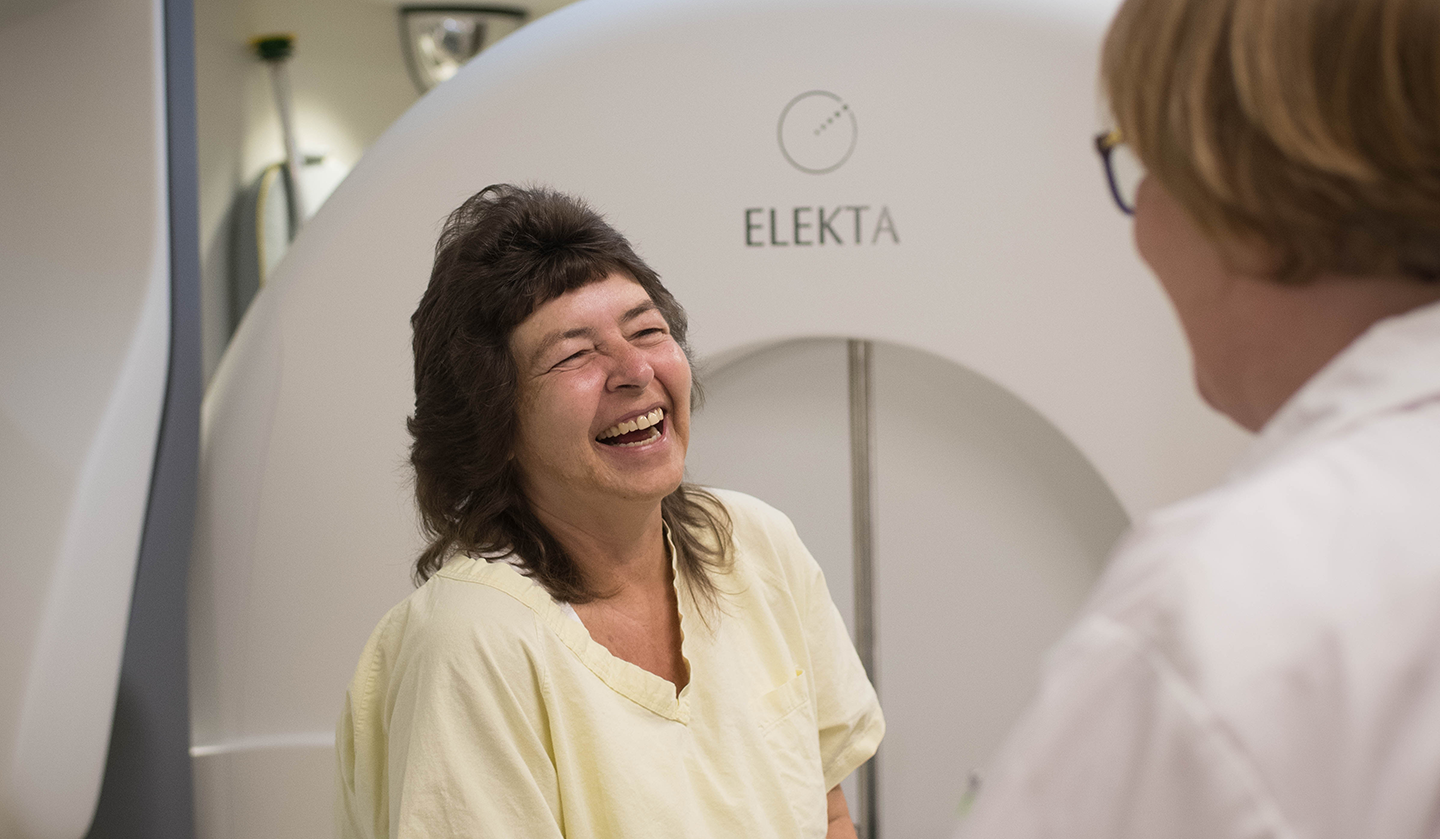Revolutionary treatment is vastly improving Salem’s quality of life
Cancer touches more families than any other disease in Canada. Salem knows it all too well.
Three generations of her family have experienced multiple forms of the disease.
“Cancer to me is just like the flu,” she says. “Whether I get it now, or when I am 75, my attitude has always been the same: it’s going to come.”
Salem was in her early teens when her maternal grandmother Evelyn died of breast cancer. It then showed up in her mother, Helen, who had a malignant tumour removed from her breast on her 50th birthday. After 15 years in remission, Helen was diagnosed with lung cancer. She passed away in December of 2015.
Less than one month after her mother’s death, Salem was diagnosed with stage 4 metastatic breast cancer. At best Salem was told she would have five years to live.
From that point on, Salem knew she wanted to treat the disease in the least invasive way possible. When her cancer spread to her brain, it became apparent there was one place best suited for Salem’s care: Sunnybrook. That’s where she met Dr. Arjun Sahgal, one of the world’s leading experts in the field of high precision non-surgical radiation therapy on brain tumours. Dr. Sahgal is a radiation oncologist and the director of the Cancer Ablation Therapy Program at Sunnybrook’s Odette Cancer Centre. He’s also the person Salem credits with drastically improving the quality of her life.
Salem knew that the standard treatment for people with metastatic brain tumours has been radiation of the entire brain. While whole brain radiation helps control tumours, it can also damage healthy tissue and harm a patient’s quality of life by damaging memory and other cognitive functioning. She knew she wanted to pursue another option.
Dr. Sahgal told Salem about a form of radiation therapy at Sunnybrook: the first of its kind in Canada and the least invasive. The Gamma Knife Icon can target with pinpoint precision dozens of tumours in the brain in one treatment, delivering low-dose radiation while sparing healthy tissue. Because it is frameless, the Icon does not need to be fixed into the patient’s head. That means no incision is made.
Salem has already had several lesions treated by the Icon. Her cancer is aggressive, which means Dr. Sahgal and his team must monitor for new or recurrent lesions. However, with the Icon, treating them doesn’t interrupt Salem’s life as much as conventional treatments might have.
At the start of her journey, Salem was told people with her condition have about a one in five chance of surviving five years. 2020 marks the fifth year since she first heard that.








